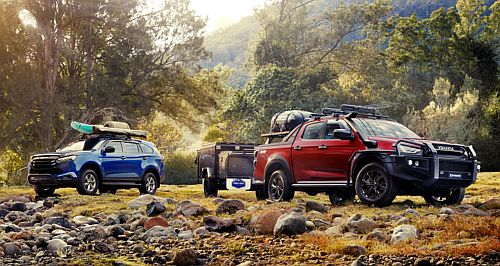Isuzu Ute urges further NVES consultation

ISUZU UTE Australia (IUA) has urged the Federal government to consult further with Australia’s automotive industry to identify a New Vehicle Efficiency Standard (NVES) that protects the interests and needs of all Australians irrespective of their locality.
The Yokohama-based firm says the implementation of the NVES proposed by the government presents engineering, financial, and timing challenges for many vehicle brands, particularly those that centre on the importation of diesel-powered utility and large SUV models as part of their range, and ultimately risks negatively impacting Australian consumers, particularly those in rural and regional settings.
Further, Isuzu Ute says that while it is working to transition toward the production of low- and zero vehicles on a global level – and is committed to the introduction of an electric ute – the reality of the situation is that the development of such technology is in its infancy in the light commercial vehicle sector, and that more time is required to develop “zero-emissions utes and large SUVs that are both affordable and fit for the specific needs of Australians, including the ability to travel extensive distances, carry a load, and tow”.
The importer says that the Albanese government’s proposal does not take into consideration automotive technology cycles (often 10 or more years for light commercial utes and their SUV-based counterparts), whereas the comparative US standards set their targets based on a forecast alignment with emission technology developments.
“In this respect, we call on the government to provide vehicle manufacturers with more time to lower the emissions of their model range through realistic product life cycles to avoid negatively impacting Australian customers,” said Isuzu Ute Australia in a statement.
IUA said that in further contrast to US Standards, the current NVES Option B proposal classifies large SUVs (including four-wheel drives) and passenger cars in the same way, despite often serving very different purposes and fulfilling different needs, and says it believes the government should consider the US approach here and distinguish between passenger vehicles and large SUVs, especially four-wheel drives.
In addition to the issues raised, IUA states that the penalties currently proposed by the government for not meeting emissions targets are “excessive”, stating that many vehicle importers will be forced to further increase vehicle pricing to cover the penalties incurred.
As noted by GoAuto Premium recently – and highlighted by IUA in its statement this week – vehicle brands that cannot increase vehicle pricing may be left with no other option but to exit the Australian market, risking a weakening of competition, again to the detriment of consumers.
IUA says it has met directly with the government to provide this feedback on the proposed NVES and is now seeking further collaboration to “achieve a solution that does not negatively impact hardworking Australians, while still seeing new vehicle emissions in Australia decline”.


